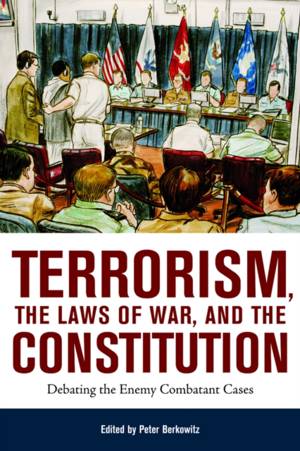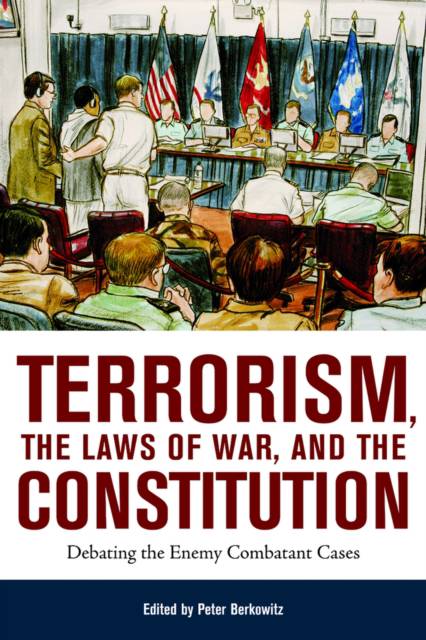
- Afhalen na 1 uur in een winkel met voorraad
- Gratis thuislevering in België vanaf € 30
- Ruim aanbod met 7 miljoen producten
- Afhalen na 1 uur in een winkel met voorraad
- Gratis thuislevering in België vanaf € 30
- Ruim aanbod met 7 miljoen producten
Zoeken
Terrorism, the Laws of War, and the Constitution
Debating the Enemy Combatant Cases
Peter Berkowitz
Paperback | Engels
€ 20,95
+ 41 punten
Omschrijving
Terrorism, the Laws of War, and the Constitution examines three enemy combatant cases that represent the leading edge of U.S. efforts to devise legal rules, consistent with American constitutional principles, for waging the global war on terror. The distinguished contributors analyze the crucial questions these cases raise about the balance between national security and civil liberties in wartime and call for a reexamination of the complex connections between the Constitution and international law.
Specificaties
Betrokkenen
- Auteur(s):
- Uitgeverij:
Inhoud
- Aantal bladzijden:
- 196
- Taal:
- Engels
Eigenschappen
- Productcode (EAN):
- 9780817946227
- Verschijningsdatum:
- 1/06/2005
- Uitvoering:
- Paperback
- Formaat:
- Trade paperback (VS)
- Afmetingen:
- 154 mm x 232 mm
- Gewicht:
- 353 g

Alleen bij Standaard Boekhandel
+ 41 punten op je klantenkaart van Standaard Boekhandel
Beoordelingen
We publiceren alleen reviews die voldoen aan de voorwaarden voor reviews. Bekijk onze voorwaarden voor reviews.











